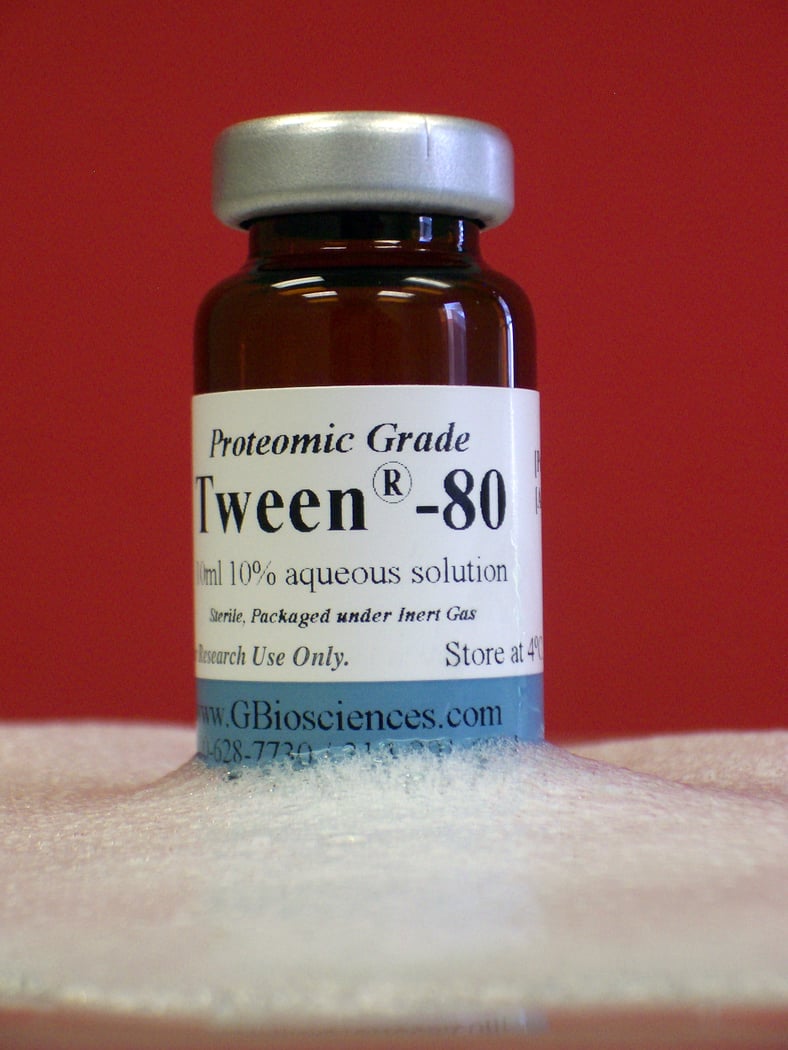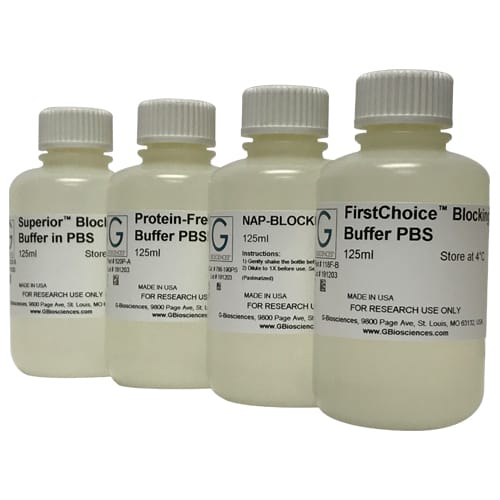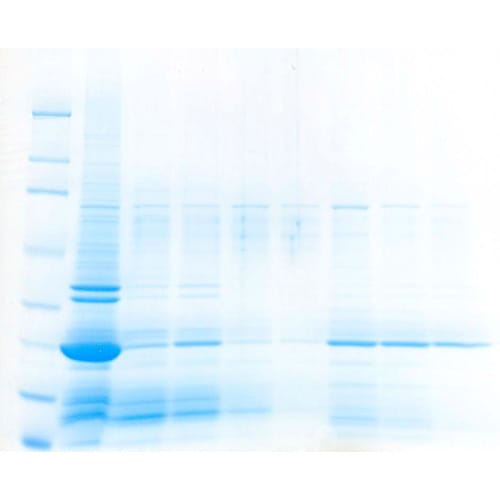Various types of commercial-grade detergents contain elevated levels of sulfhydryl oxidizing agents, peroxides, salts, and carbonyl compounds. The proteins that are isolated by these detergents are highly susceptible to contaminating peroxides and carbonyls. The peroxides oxidize the proteins, and the carbonyl groups will form Schiff’s bases with the proteins that interfere with its structure.
The Role of Tween 80 in Protein Solubilization and Stabilization
Posted by
The Protein Man on Mar 10, 2020 2:30:00 PM
0 Comments Click here to read/write comments
Topics: Detergents
Blocking Buffer Selection Guide: Tips for Selecting the Best Blocking Agent
Posted by
The Protein Man on Mar 3, 2020 2:30:00 PM
Blocking buffers are used to bind the surface areas that may attach to reagents during the testing process and prevent nonspecific antibodies from interacting with reagents. Blockers can also cause poor reading or inaccurate results.
0 Comments Click here to read/write comments
In 1975, Porath developed Immobilized Metal Affinity Chromatography (IMAC). It is based on the interaction of specific protein residues, including histidines, cysteines, and occasionally, tryptophans, with cations of transition metals.
0 Comments Click here to read/write comments
Topics: Protein Purification
Why RIPA is for More Than Just Radioimmunoprecipitation Assays
Posted by
The Protein Man on Feb 18, 2020 2:30:00 PM
The RIPA buffer, or Radioimmunoprecipitation assay buffer, is ideal for whole-cell extracts, as well as protein assays. However, it is an essential component in other applications too.
0 Comments Click here to read/write comments
Topics: Protein Extraction




-1.png?width=788&name=786-489-(new)-1.png)


